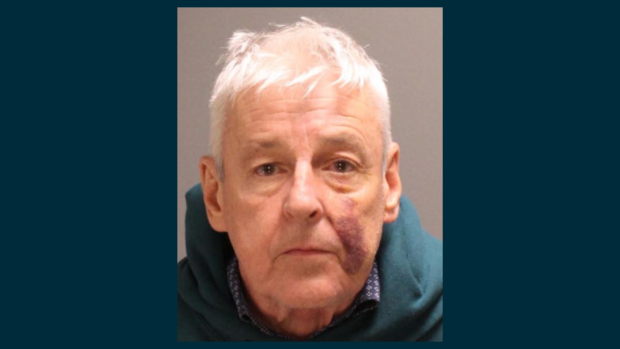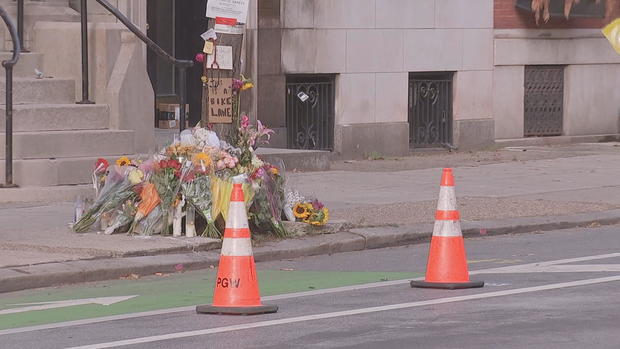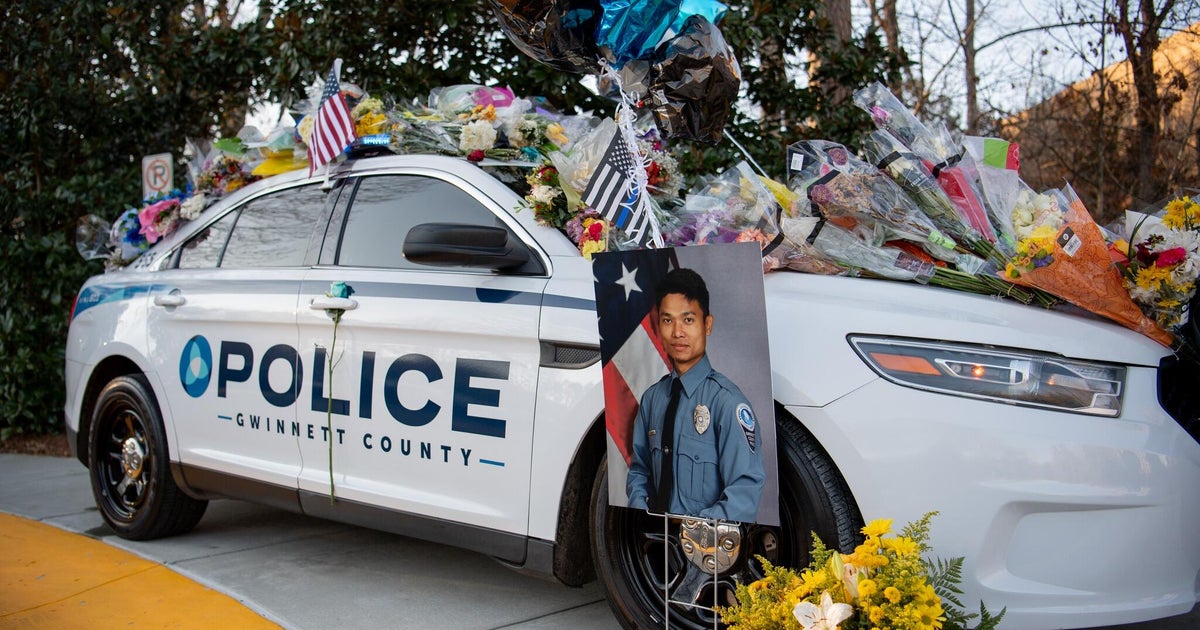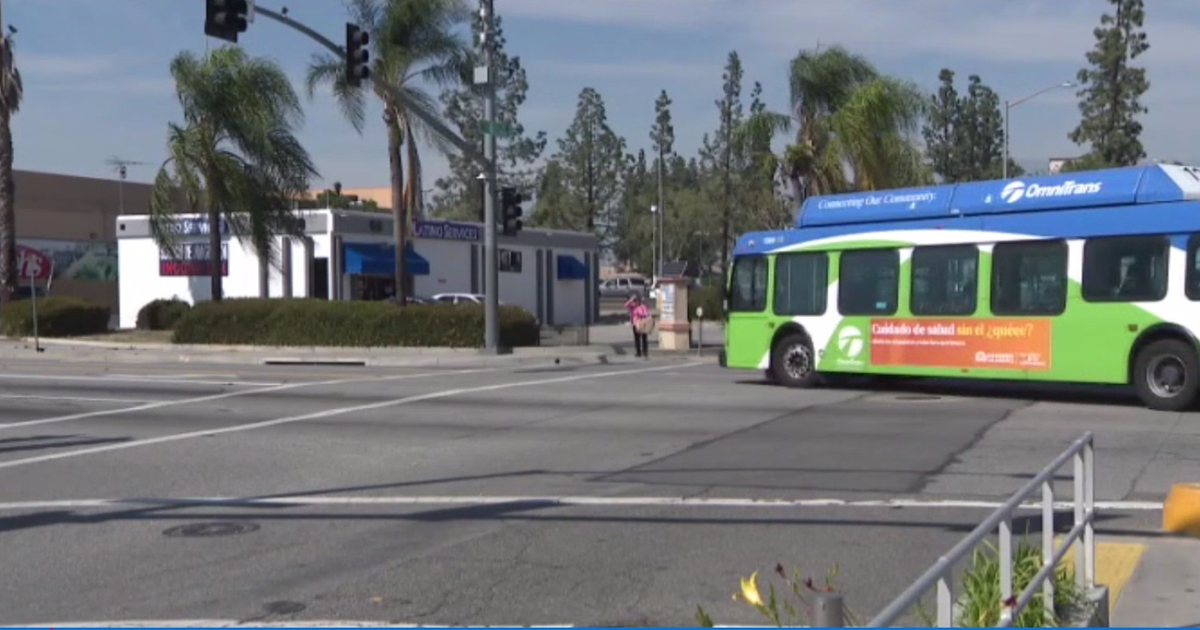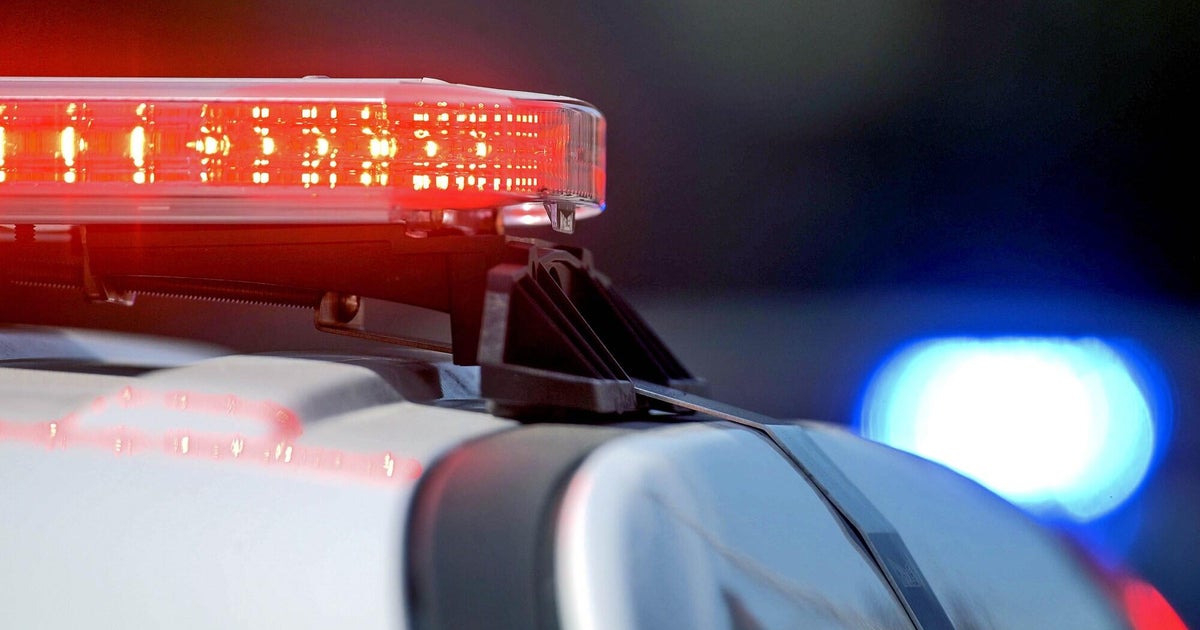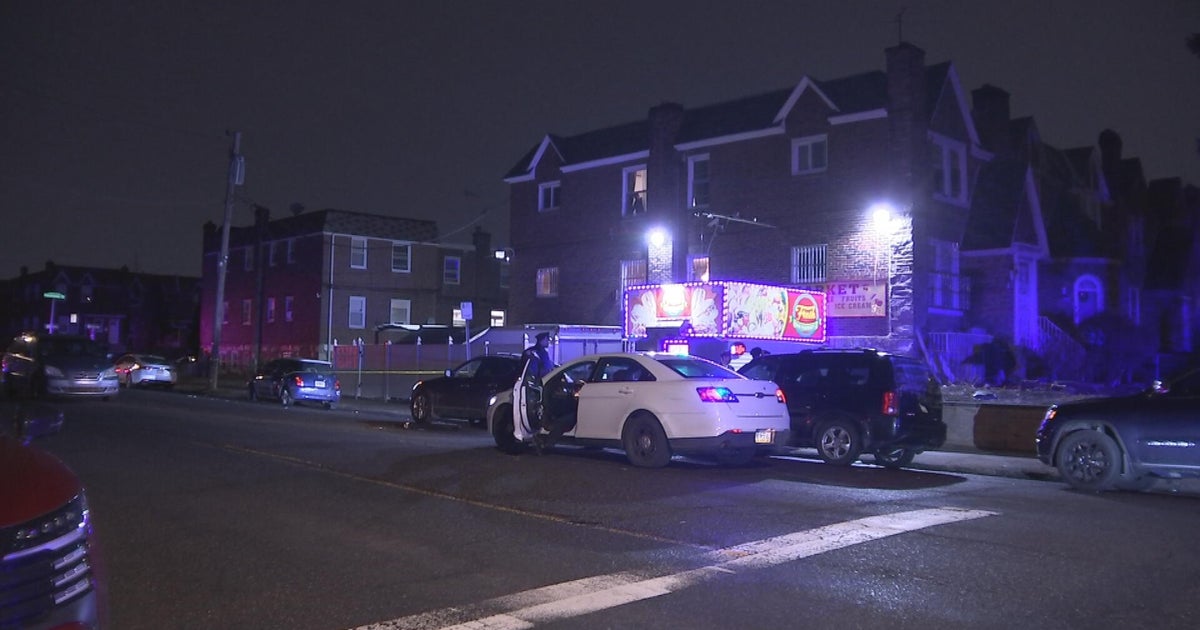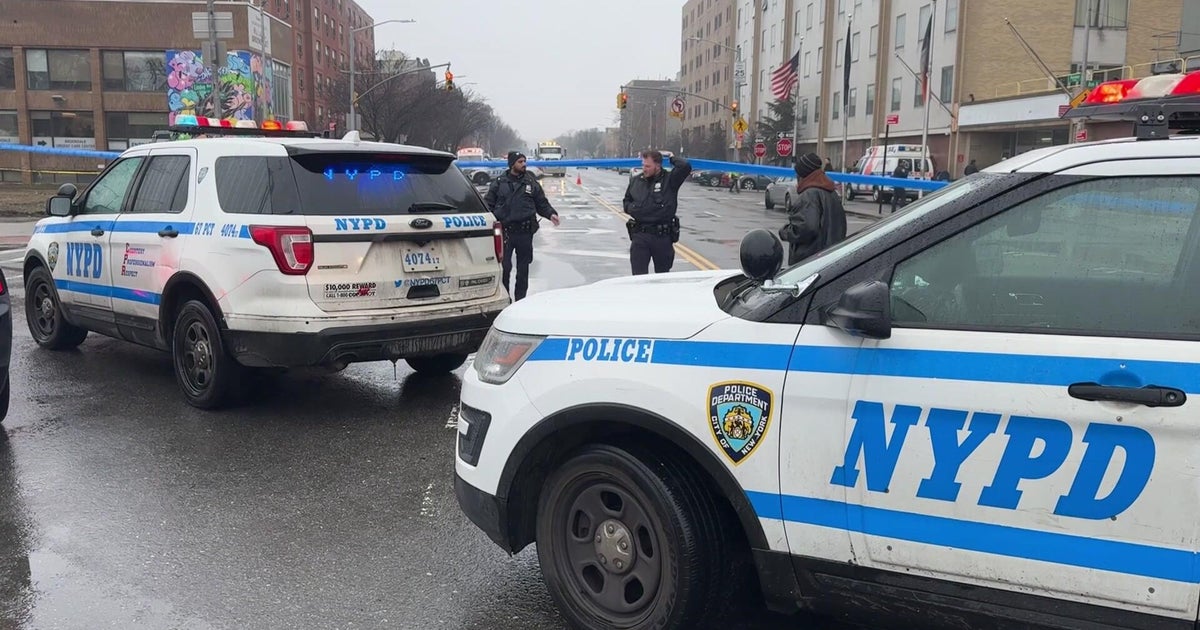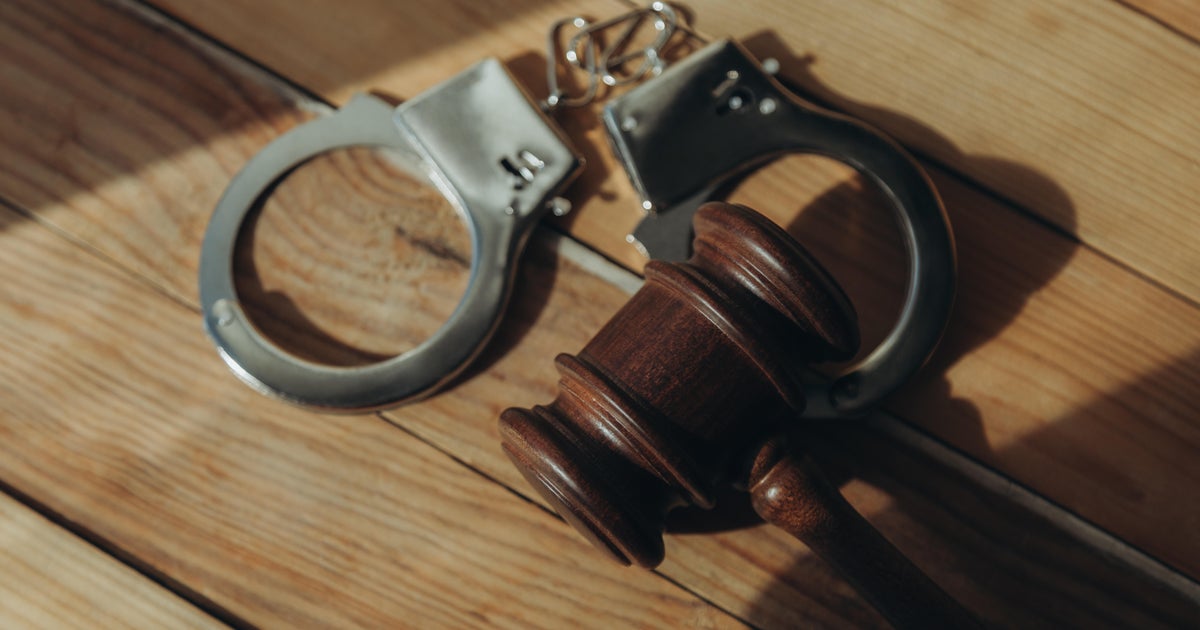Driver accused of hitting, killing CHOP doctor Barbara Friedes had BAC nearly twice legal limit, DA says
PHILADELPHIA (CBS) -- Just over a week after Children's Hospital of Philadelphia doctor Barbara Friedes was hit and killed while riding her bike in Rittenhouse Square, Philadelphia District Attorney Larry Krasner announced Wednesday that the driver officials believe is responsible has turned himself in to authorities.
According to Krasner, Michael Vahey was driving the car that struck Friedes, a chief resident at CHOP, as she was riding in the designated westbound bike lane on Spruce Street near 18th Street on July 17.
During a press conference Thursday with Philadelphia Police Commissioner Kevin Bethel and bike safety advocates, Krasner said Vahey turned himself in on Tuesday, July 24. Vahey's bail was set at $1 million and he was arraigned on Thursday night.
"I stand in this moment thinking about Dr. Friedes and her family, thinking about a young lady who was raised and went this far, and was taken away because someone decided to use alcohol," Bethel said.
According to the DA's office, Vahey was under the influence of alcohol at the time of the crash and had a BAC of nearly 0.16. The legal limit is 0.08. He was also reportedly traveling over 50 mph, double the speed limit in the area.
Vahey is facing numerous charges, including homicide by vehicle by DUI, homicide by vehicle and involuntary manslaughter.
Speaking to reporters, Krasner detailed the case's "challenges" and responded to questions about why it took so long to bring the charges against Vahey.
"Car accident cases involving fatalities involve a lot of forensics," Krasner said. He added that breaking down cell phone data, investigating the vehicle involved and looking at injuries sustained during the accident all made this a tougher case.
When asked about Vahey turning himself in days after the crash instead of being arrested at the scene, Bethel said his department had to have a "much more complex process" to ensure a strong case.
"We have to make sure we go through a very methodical process to ensure that when we work with the DA's office and his team and they are guiding us in this work, that we are making sure we have a very strong case," Bethel said. "The immediacy is not about blowing into and getting back a breathalyzer."
Friedes suffered "severe head trauma," police said after the accident, and was taken to Jefferson University Hospital where she died a short time later. She was 30 years old.
"Barbara was a beacon of light," Dr. Jeanine Ronan, attending physician and program director of the Pediatrics Residency Program, said in part in a statement shared with CBS News Philadelphia. "She was loved by so many and embodied kindness, strength and a deep compassion for all who crossed her path."
According to the Philadelphia Parking Authority, Friedes was the first cyclist death reported in the city in 2024.
In a statement shared with CBS News Philadelphia, John Dietrick, Friedes' father, and her mother Mary, said, in part: "We will be working closely with DA Krasner's office and Assistant District Attorney Katherine Wood to ensure Barbara's death is not another statistic, that there is change, and that there is full accountability with tangible results not nice words of remorse and sorrow."
In the statement, Friedes' parents thanked Philadelphia police and the district attorney's office for their work so far.
"When Barbara had a challenge before her, she never took the easy path – she fought for what was right versus what was easy – she defended those who couldn't defend themselves – she will continue to make a difference, and we must honor her," they said in the statement.
Advocates call for more bike lane protections
In the wake of Friedes' death, advocates said Spruce Street has one of the most popular bike lanes in the city, but it's too dangerous for cyclists.
Spruce is a one-way, one-lane street running east to west. The parking lane is to the right of the lane of traffic. To the left of the road is a small buffer lane, and a bike lane is on the far left next to the sidewalk. Advocates say the buffer lane is not enough to protect people on bikes.
"If there was a concrete barrier between the driver and Barbara yesterday, Barbara would be alive today," said Nicole Brunet, policy director with the Bicycle Coalition of Greater Philadelphia.
"In 2009 we also recommended a protected bike lane, but that request was rejected," Brunet said.
The Bicycle Coalition is calling on city leaders to:
- Fully protect the Spruce and Pine streets bike lanes and other protected bike lanes throughout the city with permanent concrete barriers
- End the legacy practice of allowing parking in bike lanes on weekends
- Replace all "No Parking" signage with "No Stopping" signage along protected bike lanes
The family of Emily Fredricks, a 24-year-old pastry chef who was hit and killed by a sanitation truck while riding her bike to work in 2017, went to Harrisburg in June to advocate for more parking-separated bike lanes (PSBLs). Those PSBLs allow parked cars to serve as a barrier between the bike lane and the lane of traffic.
Still, CBS News Philadelphia found car after car blocking bike lanes in the city, oftentimes forcing cyclists into traffic.
Most signs say "no parking" as opposed to "no stopping," which means drivers can legally block the lane for up to 20 minutes before being ticketed. Some residents along Spruce Street said they need to park there at least for a short time to drop off items or unload groceries.
Last year, the Philadelphia Parking Authority issued 3,887 tickets to bike lane violators, roughly triple the amount issued each of the previous two years.
Still, an investigation found numerous cars parked for more than 20 minutes and up to 75 minutes with no driver inside.
Advocates also say in recent years legislation for parking-protected bike lanes failed to pass in Harrisburg on several different occasions.
But Pennsylvania state Rep. Ben Waxman said he believes Friedes' death galvanize lawmakers to do more.
"It's important to remember that people whose primary mode of transportation is a bike [or] is walking, they have a right to safety," Waxman said. "They have a right to get themselves where they are going without fearing they are going to die."
